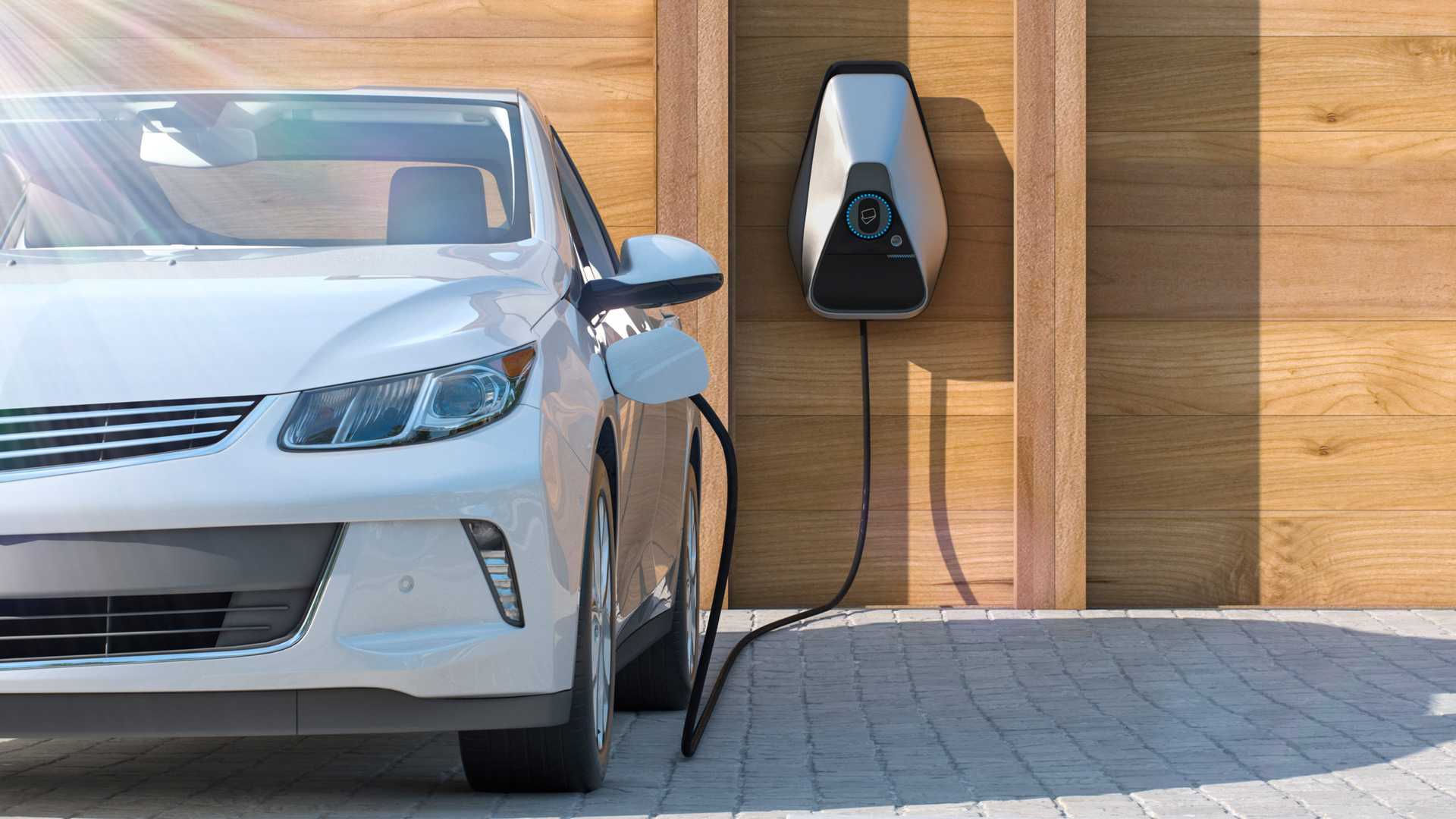Installing An EV Charging Station At Home

If you own or are thinking of purchasing an electric vehicle, one thing you have to consider is how you are going to keep your car charged. Skipping the gas station is one of the joys of owning an electric vehicle, but it won’t be so joyous if you run out of battery on your way to work. In this article, we’ll break down the different types of charging ports that are available for you to use. We’ll also breakdown the main types you can use in your home according to our electricians in Houston, TX.
On this page
- Types of at-home EV charging stations
- How much does installing an electric car charging station at home cost?
- How long does it take to install an electric car charger?
- How much energy does an EV charging station consume?
Types of at-home EV charging stations
There are three main types of charging stations:
- Level 1 Charging Station – This type of EV charging station will plug into a standard 120V household outlet. This will add 3-5 miles of range per hour charging, which is suitable if you have a plug-in hybrid EV or a very short commute.
- Level 2 Charging Station – This type of EV charging station plugs into a dedicated 240-Volt outlet and can add 12-80 miles of range per charging hour. These types of outlets are not standard in most homes, and unless your very knowledgeable in electrical circuits, it’s best to hire an electrician to install one of these outlets in your home or garage.
- Level 3 Charging Station – This type uses DC Fast Charging technology which allows an EV to be charged at its maximum rate (up to 80% in 20 minutes), depending on the vehicle’s battery capacity and the size of the battery pack. These run on 400-Volt charging system which are extremely expensive, even more expensive than some electric vehicles. These are the typical charging stations you see at rest stops on the highway and are not recommended for your home.
How much does installing an electric car charging station at home cost?
While your EV charging station does not require installation, buying one will still cost money. How much you pay for the actual equipment depends on several factors:
- The type of EV charging station. The first thing to consider is what EV charging station you want to install at home. Suppose you only plug in occasionally and don’t need the fast-charging capability. A Level 1 charger may be sufficient for your needs and requires no additional electrical work or wiring other than the standard wall outlet in your home. However, if you plan on driving more than 50 miles per day, then than installing a Level 2 charging station in your home might be the best bet.
- The type of electricity available from local electric utility companies. Check with local electric utility companies before buying an EV because some are known for having faster turnaround times when approving new connections than others.
How long does it take to install an electric car charger?
Installing a Level 2 electric car charger is relatively simple, but it takes time and money. For example, the average EV charging station installation takes 2-4 hours to complete. This can vary depending your homes electrical capacity and/or your location. Some homes may require an upgrade to the electrical to support a Level 2 charging station. Be sure to get a free home repair estimate to determine how long and how much it will cost you.
How much energy does an EV charging station consume?
The amount of energy consumed by an EV charging station depends on the make and model of your vehicle, as well as the type of charger you have. For example, a Nissan Leaf uses about 3 kilowatts per hour to charge, equivalent to an energy consumption rate of about 10 kWh per 100 miles traveled (which is about average for most EVs). A Tesla Model S uses more than twice that—about 7 kWh per 100 miles traveled.
The energy your EV charging station uses will also vary depending on how long it takes you to charge your car. If you have access to public charging stations with high-voltage fast-charging technology (DCFC), then you can use them while they’re plugged into the grid and do other things while they top off your battery pack at up to 120 kilowatts each hour (that’s equal to 15 miles driven per minute). If not, consider installing a Level 2 charger which will take 6–8 hours at 16 amps or so—which eats up another 30–40 kWh for every complete charge cycle!
Conclusion
We hope we’ve been able to address all of your questions about EV charging stations. We know many misconceptions are out there, so don’t be afraid to ask us anything! If you want more information about installing an EV charger at home or anywhere else we can help you! Sign up with PunchList to get a free home repair consultation for your EV charging station at home!


